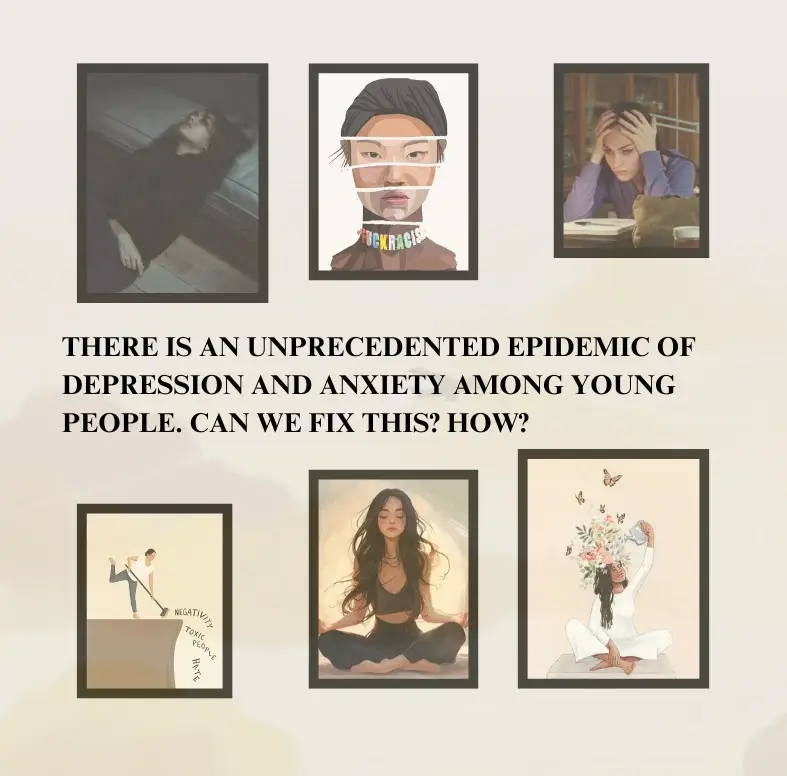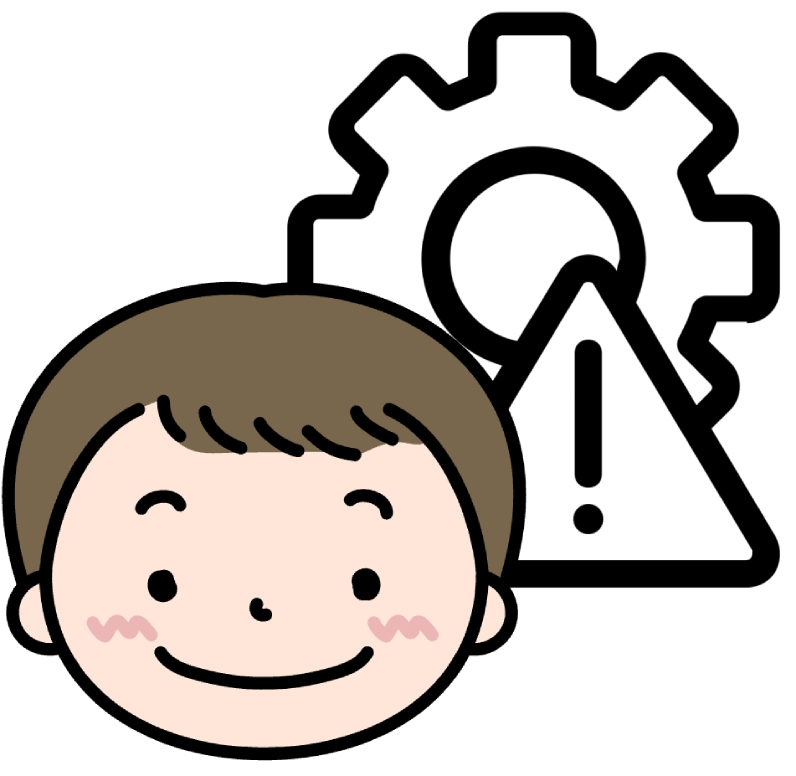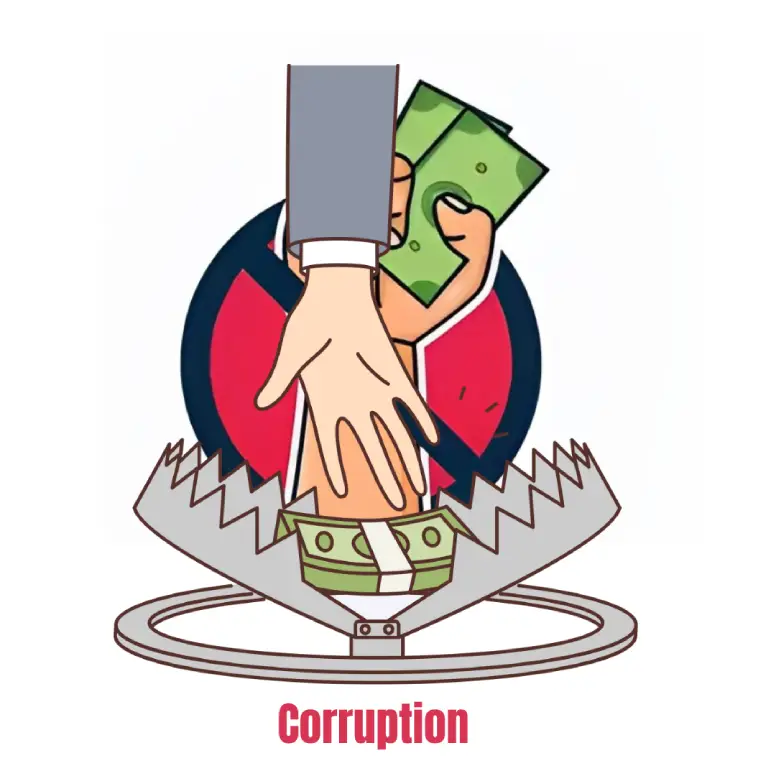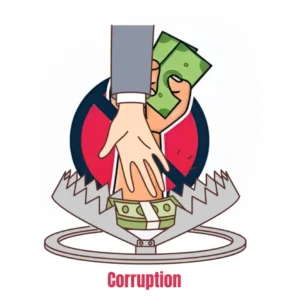The Silent Pandemic: Rising Depression and Anxiety Among Youth?
Introduction:
Depression and anxiety have become a common trend among today’s youth. The symptoms of mental disorders are prominently visible in every stranger walking around. The irrefutable fact about this disorder is that their cases have uncountably increased since the pandemic.
Youths have faced unpredictable challenges that lead to mental health crises. We have seen a high rate of suicide and depression during the pandemic. The social isolation and academic downfall faced by teens and children worldwide became a reason for depression in almost every child. Parents lost their jobs, which made their children victims of physical and mental abuse at home.
During this era of social isolation, youth were more active on social media, where they actively interacted with new people, which had both positive and negative impacts on them. People made online friends who became a part of their daily lives. They started sharing their problems with their online friends, due to which the instability of one’s mind reflected the stability of the stable one. People who were good listeners who were dealing positively with the consequences of the pandemic along with maintaining their stability of mind after listening to their online friends or people around them lost their stability with time.
This led to a depressive environment where everyone felt depressed and anxious, with or without reason, which did not end even after the end of the pandemic era. These consequences of the pandemic had an adverse effect worldwide, not just on adults but also on children and teens which led to people ending up depressed and anxious. This gave rise to unanticipated suicide statistics around the world. People unaware of the cost-free cure for depression assumed that the only way to cure it was to end everything at once. The news of suicides around the world became the main influence on the rise in suicide statistics.
1. Suicide Statistics:
Suicide is the most common word associated with depression. It is defined as death caused by injurious activities attempted by oneself with the intent to die. There has been a long history of deaths due to depression and anxiety, but this graph of deaths due to suicide has rapidly increased from 2019 to 2022 (i.e., pandemic years or years of COVID-19). According to the International Association for Suicide Prevention’s estimation, around 703,000 people die by suicide around the world each year. Suicide was the reason for over 1.3 percent of deaths in 2019. It became the fourth-leading cause of death among 15- to 29-year-olds worldwide.
2. Can We Fix This? How?
The main question that needs to be emphasized is, “Can we fix this? If yes, then how?” Depression and anxiety can be fixed if treated seriously. Medical science has evolved greatly and is aware of the treatment of every disorder, but apart from medication, there are many natural and cost-free ways people are unaware of to cure depression and anxiety.
Family and society play a major role in the life of a depressed person, and the role they want to play has always been their independent decision. Almost all teens and youths are aware of the fact that the roles played by the majority of parents and society affect the person negatively suffering from depression, leading one to attempt suicide, yet none wants to accept and change it.
There are various reasons people are facing not only during the pandemic but a long time before:
2.1 Academic Validation:
The most common thing experienced by every high school or college student in India. Academic validation is when students relate their worth to their grades and academic results. Validation is a phenomenon where an individual’s worth and value are measured by the appreciation their work, success, ideas, and creativity receive. The work and pressure faced by students to maintain the standard of performance are often neglected, which leads them to lose their actual identity and accept academic praise as their genuine identity. During this constant race for validation, students start ignoring other important aspects of life. Students seeking validation might stay up at night, neglecting their social lives, and work themselves to burnout. When students start seeking constant validation from their educators, a lack of such validation brings distress and anxiety.
To get rid of reliance on academic validation, individuals ought to prioritize their love for learning and their interests. It is necessary to set attainable objectives that align with individual strengths. Achievements beyond academics should get equal recognition and celebration. Self-care should be a priority, and seeking help if needed is also a necessary part of self-care. Success is completely dependent on the mental and physical health of the individual. Parents and society should identify and help someone build their identity based on their behavior rather than identifying them based on their achievements and successes. Children’s passion to be something they are happy with should be equally respected, like other passions someone pursues as their dream job.
2.2 Atychiphobia (Fear of Failure):
Atychiphobia is a scientific term for an intense fear of failure. If explained in simple words, people of this kind may avoid any situation where there is a probability of failure, such as an exam or a job interview. For instance, people scared of failing will refuse to face any such situation where there is a chance of failing and will end up with no achievements, which will lead to a wide range of emotional and psychological problems such as shame, low self-esteem, panic attacks, anxiety, and depression. All this will have a noticeable negative impact on performance in school and the workplace may it be business or job, as well as on daily interaction with friends, colleagues, and family. This is ruining both the professional and personal life of a person.
People suffering from this must try to identify their mistakes and work on them. They must analyze whether the efforts they are putting into the task are result oriented or not. They must pay attention to progress rather than perfection. Procrastination and other destructive behaviors should be avoided. If they faced failure earlier, they should try analyzing the cause of failure and improve it. Little victories may help restore confidence that has been lost after a setback. Set modest objectives, make an effort to meet them, and then progressively raise the complexity of your goals. This will help one overcome the fear of failure.
2.3 Social Bullying and Racism:
An attitude or behavior of assuming that someone is inferior because of the skin or race they are born in is called racism. Racism has different forms, like offensive comments and jokes. Racial bullying is the term used to describe when someone is the target of verbal, physical, or emotional abuse because of their race or complexion; racial discrimination is the term used to describe when someone is treated less favorably than another person in a similar situation because of their race, color, national, ethnic origin, or immigration status. Among these, the majority of racism is faced based on gender. This includes a decline in mental well-being, increasing psychological distress, depression, and anxiety.
Society is responsible for the cause of this depression. People should understand that each person is perfect in their own way, and if they are comfortable with their appearance, then it is completely normal. Every individual is created with unique features that make them different from others, but this uniqueness must not reflect the normal treatment they should get. Persons facing racism should distance themselves from people who treat them differently and should listen to those who really compliment their uniqueness and treat it normally.
2.4 Familial Expectation and Bloodline Responsibilities:
Family expectations include academic, social, performance, and career expectations, which have a positive impact on a child’s career but simultaneously hurt a child’s mental health, which is completely neglected by parents. These expectations mentioned above collectively, when fulfilled once or twice, give rise to unrealistic expectations of parents which force them to create pressure on children.
This pressure turns into academic stress, anxiety, and a sense of inadequacy. Children feel that they are not enough to meet their parent’s expectations and this leads to a lack of motivation which decreases their self-esteem, yet with no choice left they force themselves into excessive studying and attending extra lectures leading to physical and emotional exhaustion along with social isolation that brings a feeling of anxiety and depression.
Parents are the most important part of a person’s life, and in times of problems, no matter physical or mental, the first support a person will wish for is from their parents. But if parents start neglecting their child’s problems, the child will end up depressed. According to parents, no such thing as depression or anxiety exists because they are providing us with the privileges of the world they were deprived of by their parents. The fact parents need to learn is that sheltering kids, providing proper education, and food on time, and fulfilling the needs that they claim are ‘privileges provided’ is not a privilege instead it is a responsibility parents must fulfill without mentioning.
When the child grows up, along with a sense of maturity, there comes a sense of understanding of what is right and wrong, which also enhances their sense of decision-making. Children start making their own decisions, which parents deny even if they are right, just because decisions were made by their children and not them. Parents should understand that not every decision made by children will be wrong. They should support their children’s right decisions and should provide proper guidance in wrong decisions rather than forcing their decisions upon them just for the sake of their reputation in society. The thought of not supporting their children’s decisions that they feel are right but against the rules of society for fear of losing their reputation is wrong it must be changed.
All these reasons mentioned above are visible in every young person walking out there. This list can never be summarized into points or paragraphs. These are the reasons that have been noticed by now, and if proper measures and care towards depression are not taken, this list of reasons will never end but rather will increase.
People already suffering from depression and anxiety have the ways in which they want to be treated. If you notice, some people need proper care and support. They need proper listeners and speakers to motivate them regularly. They should be encouraged to achieve their goals, rather than burdened with responsibilities. On the other hand, some people want to be treated normally. They should be treated with care without making them realize that they are depressed. A positive environment should be created around them rather than overloading them with responsibilities and taunts of not being able to achieve anything.
Apart from the support of parents and friends a depressed person should try to follow a proper routine and diet and maintain it for a long time that can help one get back to their normal life that was ruined. They must share their feeling with some adult who will give proper advice and care. Regular exercise can help the brain revert to its positive thoughts. They should also push themselves to something new, like visiting new places that have a positive aura, cooking something new, reading books, learning a new language, and trying new hobbies. A person suffering from this must indulge in physical activities. They must indulge in things that make them happy and find new ways of happiness.
Conclusion:
Depression and anxiety can be fixed if treated seriously with proper help provided by parents, friends, and loved ones. Apart from the help provided by others, if a person decides to help themselves out of such disorders, they can unquestionably cure depression and anxiety without any medication. Parents must understand the difference between responsibility and privilege; they must stop making their children feel privileged for fulfilling responsibilities.

















